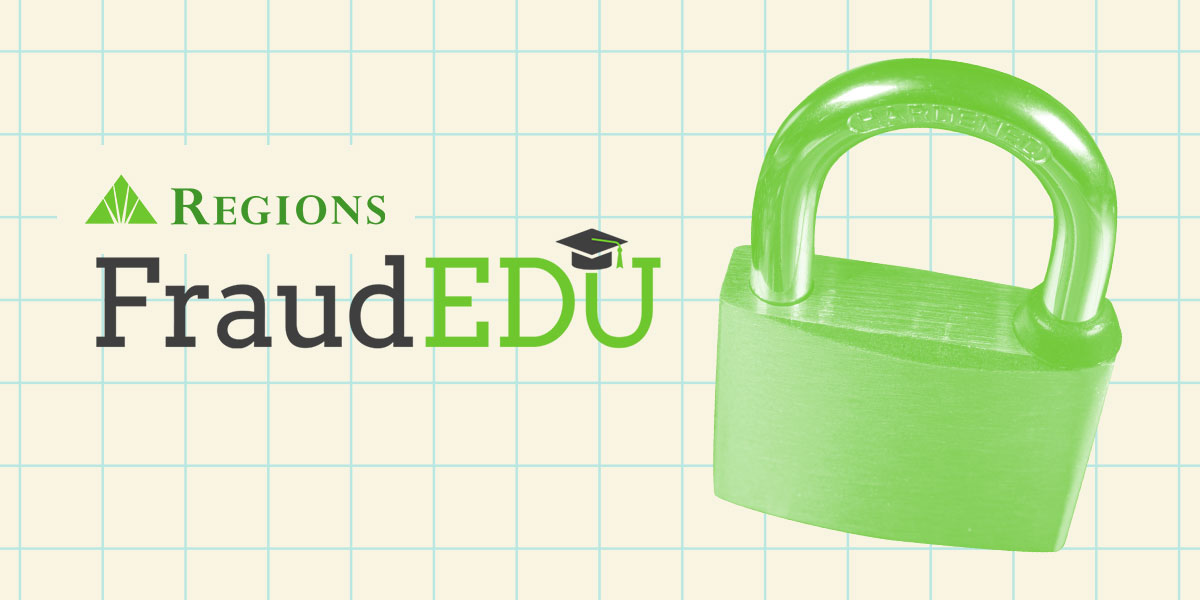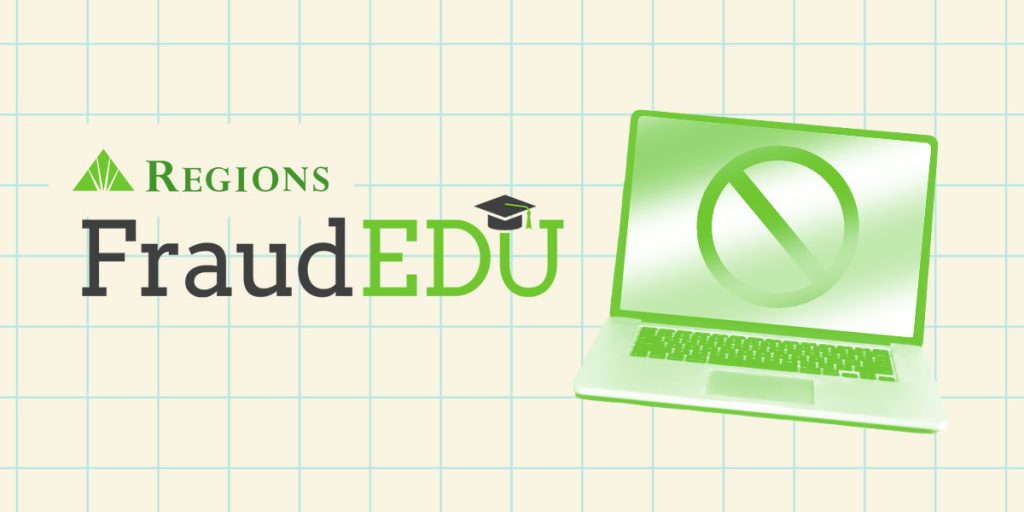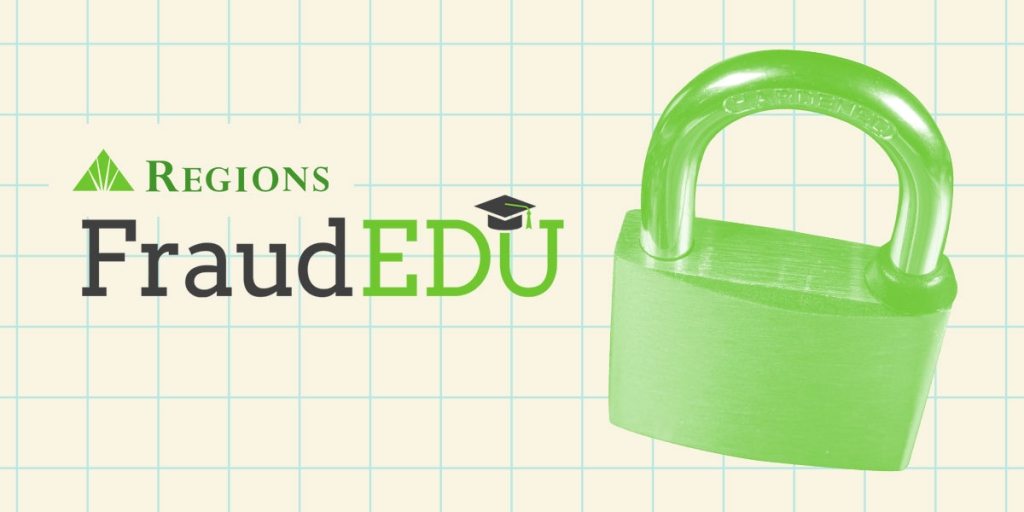The college semester is about to start. Elementary, middle, and high-schoolers are already back to class. A lot is going on.
Students are memorizing new schedules, getting used to new classes and teachers. Parents are juggling more than ever before – Who’s dropping the children off at school tomorrow? Are the kids’ lunch accounts paid up? When is tuition due? Does the child we’re sending off to college have the money they need?
We get it. Back to school is a lot.
Scammers get it, too.
That’s why this is prime time for them to cash in on all the change a new school-year brings, trying to get between you and your money.
And that’s why Regions Bank takes a special back-to-school focus in its year-round fraud-prevention information.
“We understand the types of information people need to keep their money safe,” says Jeff Taylor, head of Commercial Fraud Forensics at Regions. “We’re parents, too. We get the same types of solicitations and texts and emails everyone else gets. Our hope is to combine our financial experience with our fraud-prevention experience in ways that empower more people to recognize and avoid scams.”
For Parents: Protecting Your Family:
Beware of Fake Websites and Sellers. The start of a new school year often means shopping for supplies, books, and tech. One common trap involves fake websites selling school supplies or tech at enticing prices, or fake booksellers advertising hard-to-find textbooks. “That’s where you can get in trouble,” Taylor cautions. “You need to know you’re purchasing from a trusted website, because the scam is pretty simple when it works: you pay for something, and you never receive it.”
Stay Cautious on Social Media. Social media is a popular place for parents to connect, but not everyone has good intentions. “It’s easy to get duped,” says Kimberly Reece of the Regions Fraud Strategy Customer Advocacy Team. “The goal of social media is to network and make friends, but not everyone out there has sincere intentions.” Be vigilant when encountering back-to-school offers or groups on social platforms, and never share sensitive information.
Monitor Your Financial Accounts and Report Suspicious Activity. Regularly review your bank and credit card statements – or, better yet, keep watch on your banking app and set notifications for expenses – to quickly spot unauthorized charges. Setting up transaction alerts helps keep you informed in real time. If you encounter suspicious emails, calls, or websites, report them promptly to the Federal Trade Commission or your local consumer protection office. Early reporting helps protect you and others from falling victim.
For Older Students: Protect Yourself as You Go Back to School
Scammers often prey on the excitement and stress of returning to school, offering fake financial aid, bogus scholarships, or fraudulent housing opportunities.
Be Wary of Financial Aid Scams. Always be cautious when you receive offers for scholarships, grants, or loans that require up-front fees or personal information like your Social Security number or bank details. Verify any financial aid information through your school’s official financial aid office or trusted scholarship websites before taking any action.
Protect Your Digital Identity. Your online accounts – email, student portals, financial services – contain sensitive information. Use strong, unique passwords and enable two-factor authentication whenever possible, and don’t use the same password across multiple platforms. Watch out for phishing attempts: fraudulent emails or messages pretending to be from your school or bank asking for account verification or personal details. When unsure, go directly to official websites instead of clicking links.
Monitor Your Financial Accounts Regularly. Just as Regions encourages parents to keep watch on their finances, students – who are often new to having their own account – should do the same. Set up alerts with your bank to receive real-time notifications about new transactions, helping you spot suspicious activity early.
Report Suspicious Activity Promptly. If you encounter strange emails, phone calls, or unauthorized charges, report them immediately to your school’s fraud office, your bank, or the Federal Trade Commission. Early reporting helps protect you and others from falling victim.
Stop. Call. Confirm.
Before responding to unexpected requests for money, personal information, or urgent actions – especially those received via email, text, or phone – take a moment to pause. Call the organization directly using a known and trusted number to verify the legitimacy of the request. “If something doesn’t look right, trust your gut. Before you fall victim, implement an internal control to confirm all payment requests or changes to an existing payment,” Taylor says. This simple step can help prevent costly mistakes and protect your family from fraud.
By staying informed and cautious, you can focus on your studies while keeping scammers at bay.








